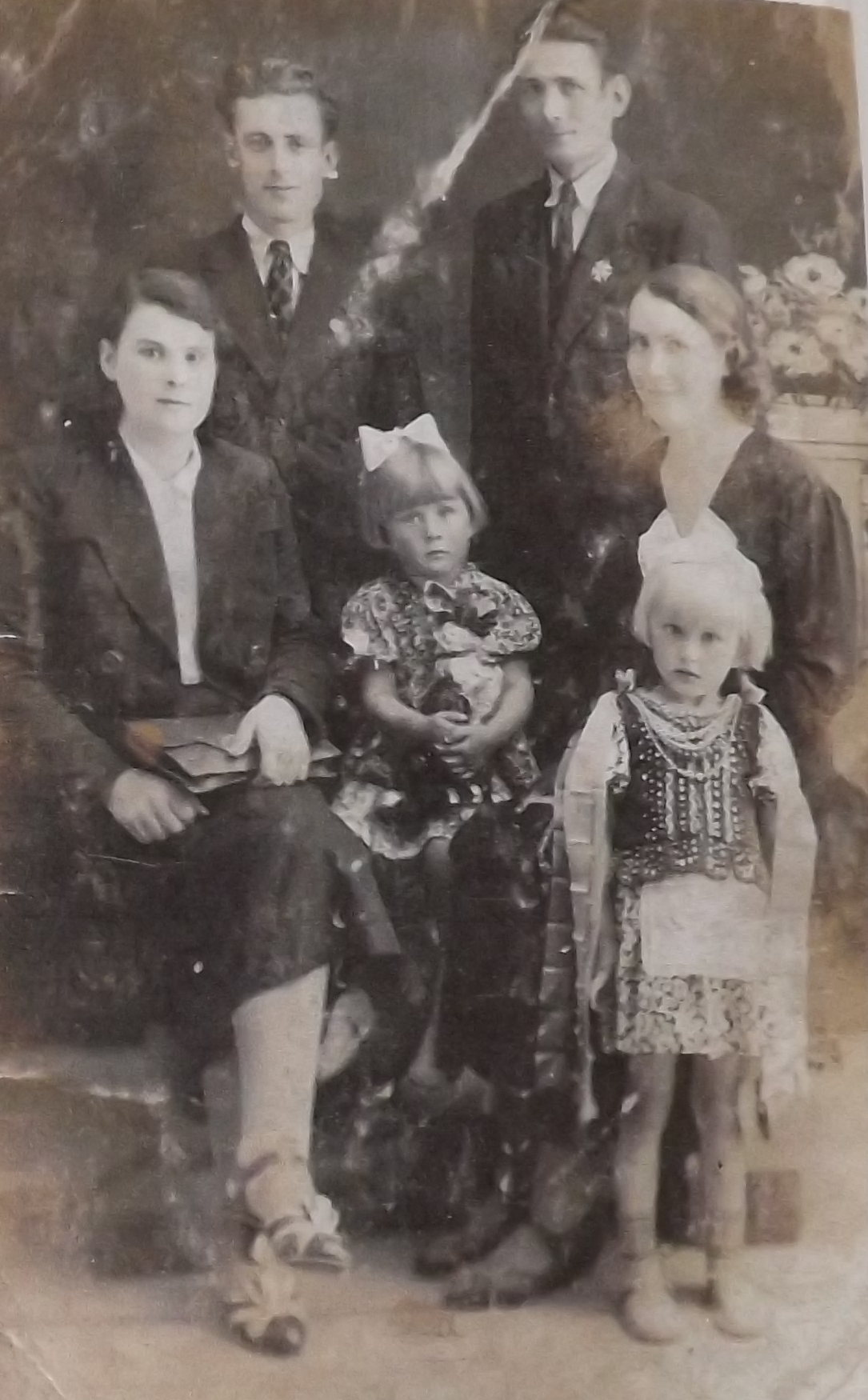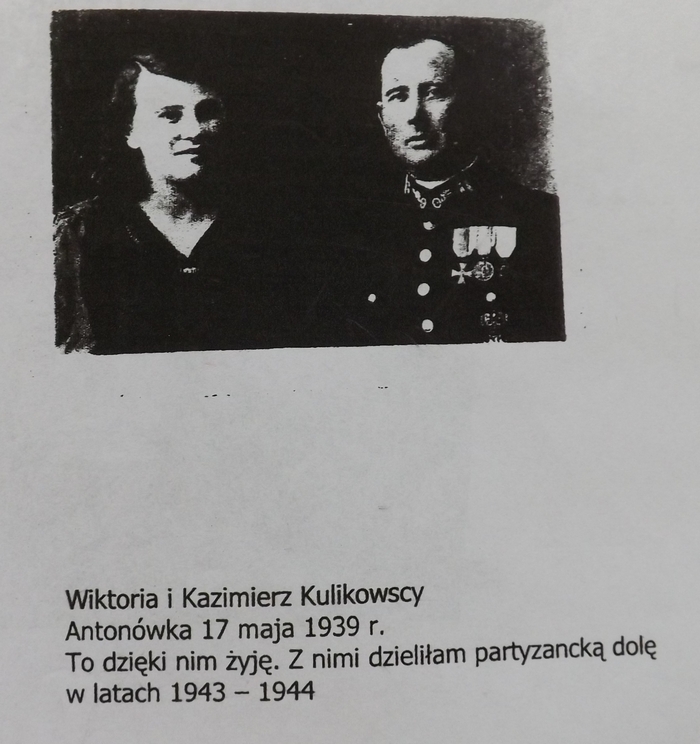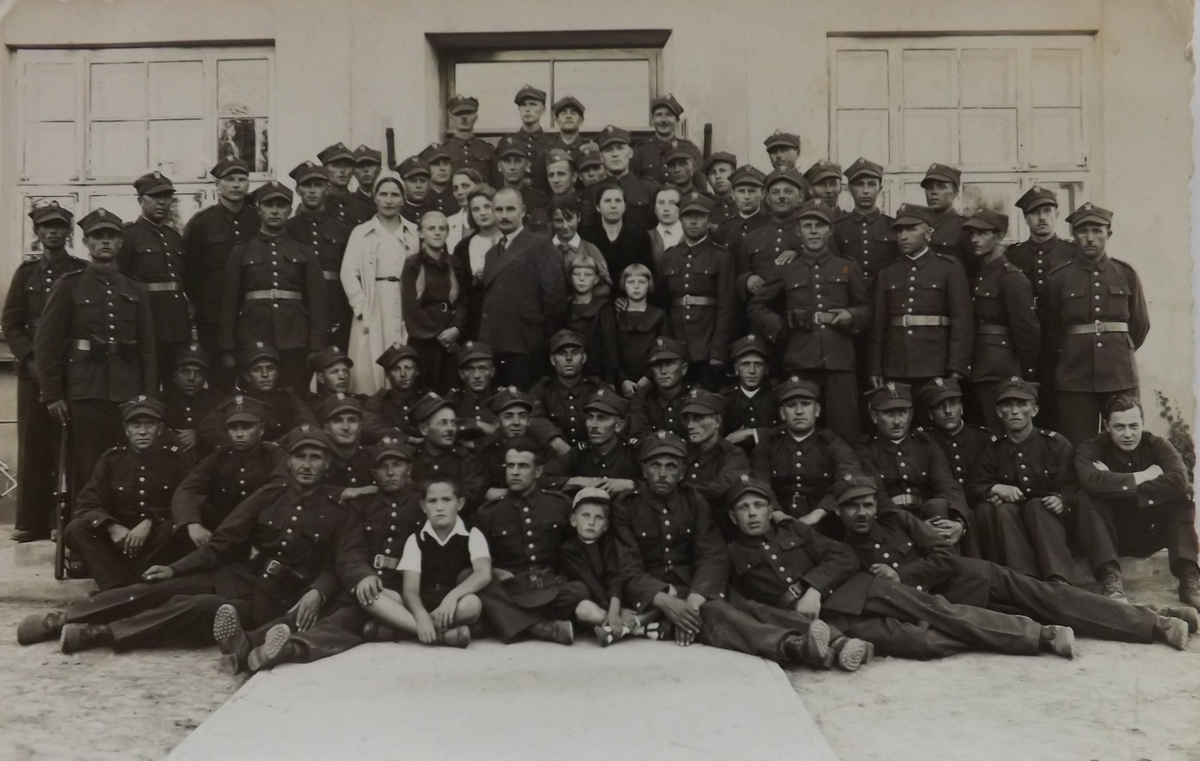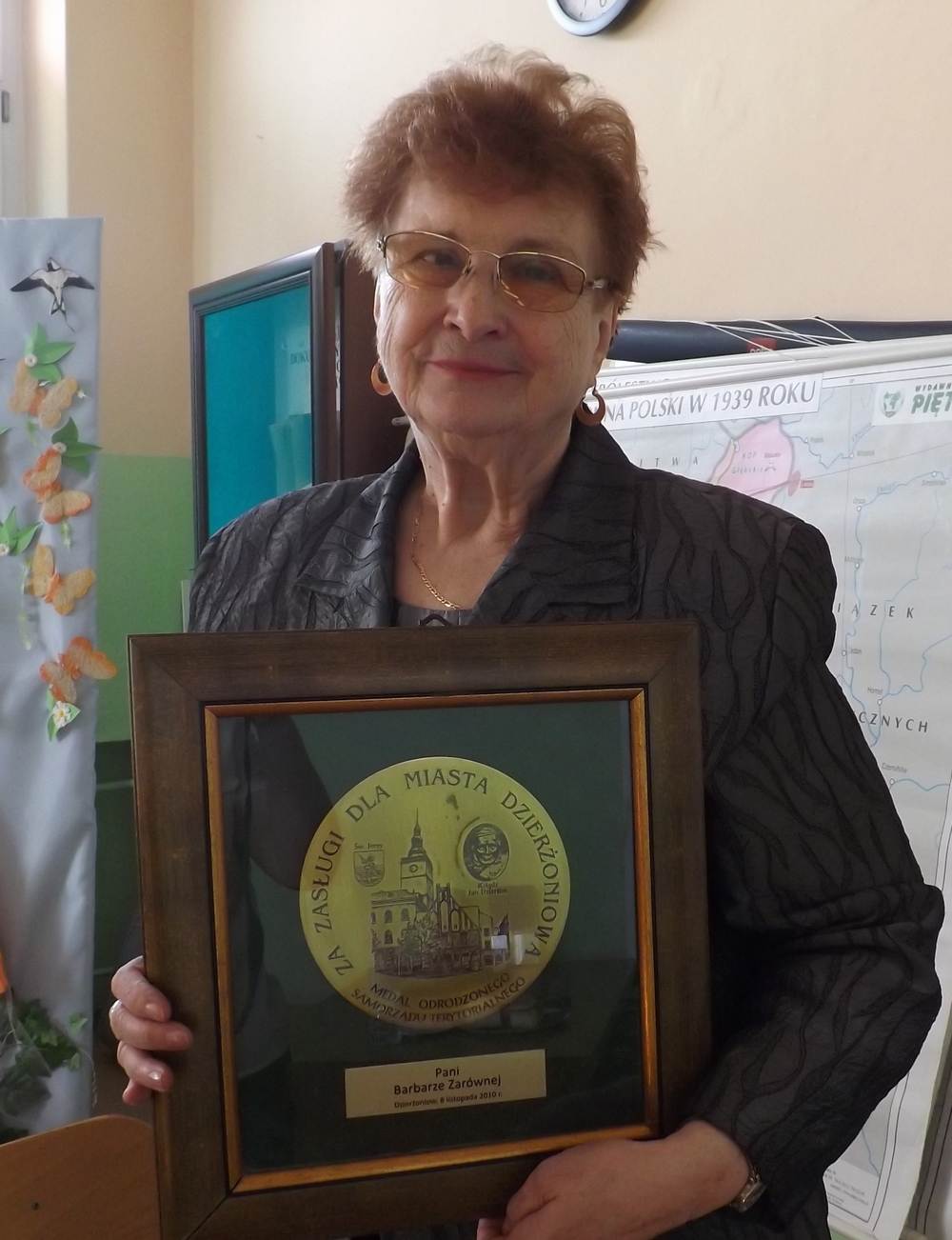I was born in 1939, I was 9 months old when the World War Two began. I was living in a village Aleksandrówka in Volhynia, near Volhynian Rokitno. When I was four years old in Volhynia started terrible slaugher of Polish people by the Ukrainian Insurgent Army.
In 1943 my village was invaded by Ukrainian troops and they murdered the inhabitants. Those Poles who survived had to escape to the forest. One of the victims of that slaughter was my nine-year-old sister Halinka. I survived because the day before with my Mum and my little brother I went to my aunt to Rokitno to take a First Holy Communion dress for Halinka. We survived thanks to my aunt who didn’t let us go home in the evening. My father survived thanks to Halinka – she woke him up when she noticed the Ukrainian people approaching the village. Halinka and my father were escaping to the nearest forest, they were noticed by the Ukrainians and they shot at them with rifles. One of the bullet reached Halinka’s back, another one – our father’s arm. They both fell down. The Ukrainians thought they were dead and they turned away. My father stood up, took Halinka on his hands and wanted to run away, the Ukrainians saw him and started to shoot again. My father looked at Halinka – there was blood on her all body, he knew she wouldn’t survive, he put her down on the grass and ran to the forest. To the end of his life he heard Halinka saying “Daddy, Daddy, save me…” He couldn’t save her… The Ukrainians reached Halinka’s body and hurt her 17 times with bayonets. Our village Aleksandrówka was completely fired.

Basia's family before WW2
Polish people who survived the slaughter were taken to the school building in Rokitno. There they were divided : the strong ones were sent to Germany to work there, the weak and small ones were sent to death camp in Majdanek. My parents with us the children were sent to the concentration camp. We were put into a wooden cattle wagon, the men were separated from women and children. There were a lot of people in every wagon. When we stopped in a small train station and the door was open I got off the wagon, because I saw a tap with running water – I was so thirsty… While I was drinking water the door closed and the train left. I started to cry and run after the train, but I fell down, broke my head, elbows and knees… And a miracle happened. When I was lying on the rail line a man noticed me, he ran up to me, took me on his hands and started asking who I was. I looked at the man and I saw railwayman in a uniform. I was only four but I recognized my uncle.
- Uncle Kazio Kulikowski - I said.
- How do you know it? – he answered.
- You visited us and I remember you.
He asked me about my parents and what had happened I was there. I told him everything and he took me home. The Polish railwaymen could work during the war, because Germans needed railways, needed transport for people and things.

Basia's aunt and uncle who took care of Basia during the war
One day Germans and Ukrainians surrounded our guerrilla camp, where were staying mainly women and children. We had to do something to survive to inform our guerrilla troop. I was dressed up as a Ukrainian child (I spoke Ukrainian perfectly). Together with me went a Jewish boy. We had been arguing earlier but now we had to cooperate – we had to go through the forest and a Ukrainian village and reach our partisans to tell them about the danger. We were walking and some Ukrainian women gave us food as we spoke Ukrainian and said them we were going to our grandma. We reached the guerrillas and they saved our camp.

Guerrilla troop - Basia was staing with them in the forest
In the guerrilla troop I suffered from serious diseases – one of the diseases was an eye disease and the second one was pertussis (whooping cough) - a highly contagious bacterial disease. The commanders of our guerrilla troop made a decision to kill me as whooping cough was too dangerous for the whole troop. I was taken by three guerrillas into the forest, far away from our camp. They put me near a tree, aimed at me with the rifles and… I started to laugh. Then the third guerrilla took me and we went somewhere in the forest. He cured me with saccharin. After some weeks we came back to our guerilla troop.
When the Red Army came to Poland my aunt and me were sent to Zamość, where we were waiting for the end of war. My uncle joined II Polish Army and he was wounded near Wrocław. When he came back to Lublin he met my father who was coming back to Volhynia with my mum and brothers from Germany. Then my parents found out I was still alive. Earlier they all thought I died. At last I could live with my family again.
I remember when I found out that the war ended. It was 9th May 1945 together with my aunt we were queuing for bread – bread was very dark and we had to have cards to get it. The queues for bread were very long. Suddenly I heard cry, shout, laugh, joy, shots – incredible situation. The queue disappeared, I came to the women who was given out the bread and she gave me two loaves of bread – I was very happy.

Barbara today